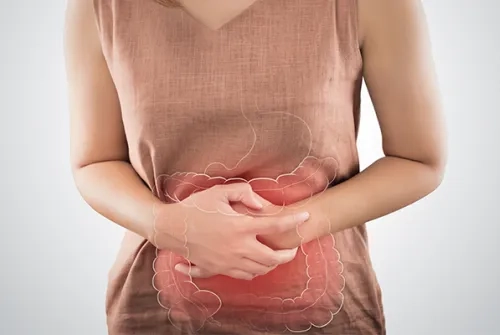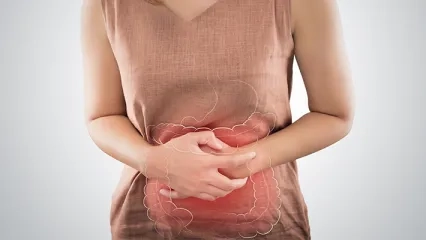Alo Yeditepe
Alo Yeditepe
What Is Reflux?
What is Reflux? What are the Symptoms of Reflux? How Is It Treated?
Reflux, which causes pain, burning and pressure in the chest, causes many people to fear a heart attack. How can you tell the difference between reflux and a heart attack?
Yeditepe University Kozyatağı Hospital Gastroenterology Specialist Prof. Dr. Meltem Ergun tells
What is reflux, how does it occur?
Reflux (Gastroesophageal reflux) is the reflux of stomach contents into the esophagus. Normally, after meals or by leaning forward, meals or stomach acid and gas may come to the mouth. However, if the patient experiences a burning sensation towards the mouth or a burning sensation towards the throat, then reflux disease can be mentioned.
Normally, the lower end of the esophagus remains closed, not allowing the stomach contents to escape into the esophagus. However, if the gastric valve is flabby, it prepares the ground for reflux. If we eat a lot and go to a lying position, reflux may occur.
What does the risk factors occurs reflux ?
The Reflux occurs depending on much stomach acid and flabbiness of lower end of esophagus. Coffee, tea , alcohol, cigarettes, choclate and grass foods are occuring / facilitating the Reflux.
Is reflux a common problem? Has there been a change in the incidence or patient profile in recent years, and if so, why?
Reflux is seen in approximately one out of every 5 people in the society. The increase in the frequency of obesity, the higher consumption of fast food-style foods, paves the way for an increase in the frequency of reflux.
Does having a diffrent stomach disease trigger reflux?
Presence of gastric ulcer disease and gastritis facilitates the development of reflux by increasing stomach acid.
What are the general symptoms of reflux?
Typical symptoms of reflux disease: Chest pain, burning sensation from stomach to mouth, and bitter/sour liquid coming into mouth.
Atypical symptoms of reflux disease: Dry cough, hoarseness, tingling sensation in the throat, dental caries
People sometimes confuse reflux with heart attack symptoms. Which complaints are confused with a heart attack, especially in reflux?
Reflux disease can also cause chest pain, so it can be confused with a heart attack. Since a heart attack can have fatal consequences, first of all, heart diseases should be excluded with ECG and blood tests. A heart attack is characterized by severe pain that starts on the left side of the chest and hits the chin or left arm, and a feeling of sweating and feeling of dread. In reflux, on the other hand, the burning sensation that starts behind the bone, which is called sternum, in the middle of the chest and spreads into the mouth, is in the foreground. However, considering that typical symptoms may not be present in every patient, an evaluation should be made in terms of heart diseases first, and treatment for reflux disease should be given after heart diseases are excluded.
It is stated that the coexistence of gastric hernia and reflux can have much more serious risks. How would you evaluate the coexistence of gastric hernia and reflux?
A gastric hernia is the slipping of part of the stomach into the chest cavity. In this case, the protective effect of the gastric valve from reflux weakens and the acid starts to run igher. It prepares the ground for reflux disease.
What are the methods used in the diagnosis of reflux?
The diagnosis of reflux is made by the symptoms of the disease and clinical findings. Endoscopic examination is generally the most important method used in diagnosis. Intra-esophageal pH measurement is required in some cases.
When is endoscopic examination necessary?
1. Complaints of heartburn, burning, gas and bloating in the stomach starting over the age of 40
2. Stomach bleeding (bloody vomit from the mouth or black or bloody stool)
3. Involuntary weight loss
4. Abdominal mass
5. Stomach pain and nausea-vomiting
6. Difficulty swallowing
7. Family history of stomach cancer
What are the methods used in the treatment of reflux?
Lifestyle changes come first in the treatment of reflux. The first thing to do is not to sleep with a full stomach, not to smoke and alcohol, to eat little and often, to avoid hot, spices, tomato paste and grassy foods that trigger reflux.
Drug therapy is generally used in the treatment of reflux. In rare cases (if there is a large gastric hernia, etc.), surgical treatment may come to the fore, but it is considered appropriate for experienced surgeons to perform this operation, especially in experienced centers.
Is it possible to prevent reflux? What can be done about this?
In order to prevent reflux, it is beneficial to eat little and often, not to gain weight, to lose weight if we are overweight, to abandon bad habits. In addition, it is beneficial not to wear tight clothes such as corsets and to avoid greasy, spicy and hot foods and to reduce fast food style meals as much as possible.
The Mediterranean type of diet, in which vegetables, fruits, fish and foods with olive oil are consumed abundantly, both prolong life, prevent or delay the development of chronic diseases, and reduce the occurrence of reflux.
Does reflux cause cancer?
In long-term reflux disease, there is a slight increase in the risk of cancer, especially in the case of endoscopically called Barrett's esophagus. However, each patient should be evaluated individually according to the results of endoscopic follow-up and pathological evaluation. Barrett is rarer in our country than in European countries and we see very little cancer development in Barrett's background. We say yes to monitoring and control, but no to panic and anxiety.
About
Faculty and Year of Graduation:
İstanbul University School of Medicine, 1995
”
See Also
- What is Constipation? What Helps With Constipation?
- What is Hepatitis B? What are its symptoms? How is it Transmitted?
- How to Cleanse the Liver the Fastest?
- Who Gets Colon Cancer?
- What is Colostrum? What are the Benefits of Colostrum Milk?
- Stomach Cancer Causes, Symptoms and Treatment
- What is Colon (Intestinal) Cancer? Symptoms and Treatment
- What Causes Nausea? What is Good for Nausea?
- What is Heartburn? What is Good for Heartburn?
- What is Fatty Liver?
- What is Good for Diarrhea? How to Treat Diarrhea?
- What is a Probiotic? What Are Its Benefits?
- What are the Nutrients That Stress Digestion?
- What are Capsule Treatment Methods in Stomach, Small, and Large Intestine Screening?
- Gastroenterology Procedures
- Pay Attention When Consuming These Nutrients!
- Mediterranean Diet Prevents Developing Colon Cancer!
- Breakthrough Innovations in Colon Cancer
- Diarrhea and Constipation Increased in Those with Irritable Stomach
- Anemia, Constipation, and Vomiting of Unknown Cause Can Be Dangerous
- Ramadan Warning for Those Who Experience Stomach Disorders
- Causes and Treatment of Abdominal Bloating
- Hepatitis Disease Poses Risk for Esophageal Varices
- The Giant Stones In The Biliary Tract Of 71-Year-Old Patient Were Removed Without Surgery
- How Is Stomach Infection Transmitted?
- What is Gastroesophageal Reflux Disease?
- Capsule Endoscopy
- Stretta / Endoscopic Reflux Treatment
- Fundoplication Method / Endoscopic Reflux Treatment
- Throat Reflux
- Techniques and Applications Used in Gastroenterology
- Irritable Bowel Syndrome (IBS)
- How to Swallow the Drug?
Alo Yeditepe





